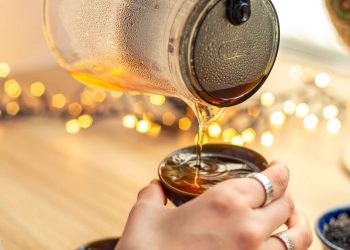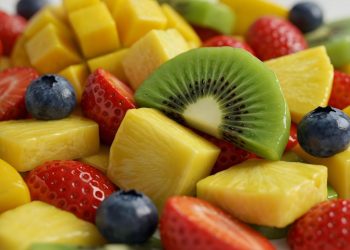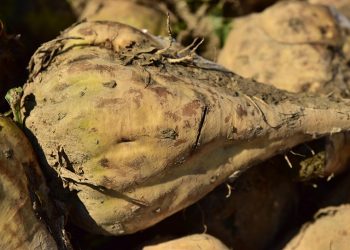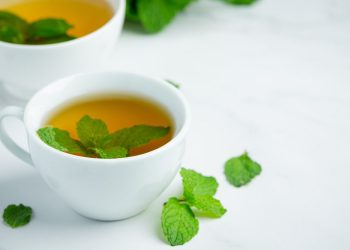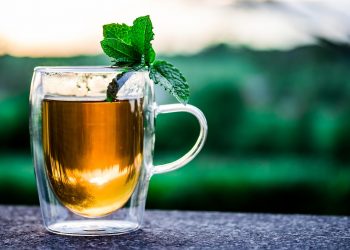5 Herbal Teas for Blood Sugar Control You Need to Try
The afternoon sun slips through the window, your favorite mug’s warmth resting between your palms. A splash of herbal infusion promises not just comfort but potential health benefits, especially when it comes to blood sugar control. With diabetes on the rise—as many as 463 million people were living with the condition worldwide as of 2019—finding natural ways to manage blood sugar is vital. Have you ever wondered if what you drink could help balance your levels?
This article explores five herbal teas that may aid in blood sugar management, diving into their unique properties, potential benefits, and any limitations. Each tea has been part of various cultures and traditional practices, but recent scientific studies provide a fresh look at their effectiveness.
Contents
1. Cinnamon Tea
Cinnamon is more than just a cozy addition to your oatmeal; it’s a powerhouse for blood sugar control. Research suggests that cinnamon may improve insulin sensitivity, making it a popular option for those monitoring their blood sugar levels.
Benefits
A study published in the Journal of Diabetes Science and Technology found that cinnamon supplementation significantly reduced fasting blood glucose levels in type 2 diabetes patients (Khan et al., 2003). In addition to helping regulate blood sugar, its anti-inflammatory properties can also support overall metabolic health.
Limitations and Considerations
However, not all cinnamon is created equal. The Cassia variety, which is commonly found in supermarkets, contains higher coumarin levels that may be harmful in large doses. Therefore, when brewing cinnamon tea, it might be beneficial to use Ceylon cinnamon, which is lower in coumarin.
2. Ginger Tea
Ginger is famous for its warming spice and digestive properties, but emerging research shows its potential in blood sugar regulation.
Benefits
A 2015 study in the Journal of Ethnic Foods indicated that ginger extract improved fasting blood glucose levels and HbA1c in patients with type 2 diabetes, thus underscoring its role as a glucose-lowering agent (Thompson et al., 2015).
Moreover, ginger may help combat oxidative stress and inflammation, factors that can exacerbate blood sugar issues.
Limitations and Considerations
While ginger has numerous benefits, aggressive consumption can lead to digestive discomfort for some. Always start with small amounts and monitor how your body responds.
3. Berberine Tea
Though not as mainstream as other teas, berberine—a compound found in several plants—has gained traction in health circles for its promising effects on metabolism.
Benefits
Berberine significantly improved glycemic control in a systematic review involving multiple studies (Zhang et al., 2012). This bitter extract can activate an enzyme known as AMPK, which plays a crucial role in regulating glucose and lipid metabolism.
Limitations and Considerations
One downside of berberine is its potential to interact with various medications, including those for blood pressure and blood sugar. Consulting a healthcare provider is essential before incorporating berberine tea into your routine, especially if you’re already on such medications.
4. Peppermint Tea
Often associated with digestive relief, peppermint tea can also lend a hand in blood sugar control.
Benefits
A study published in the Journal of Ethnopharmacology found that peppermint extract improved insulin sensitivity and reduced fasting blood sugar levels (Khan et al., 2018). This invigorating tea can offer a refreshing way to potentially stabilize glucose levels.
Limitations and Considerations
While peppermint tea is generally safe, its use can sometimes increase gastric reflux in those prone to it. If you find herbal teas exacerbate such symptoms, it might be wise to explore other options.
5. Fenugreek Tea
Fenugreek is often regarded as a culinary herb, but its seeds have emerged in the spotlight for their blood sugar-lowering potential.
Benefits
In a 2011 study, participants who consumed fenugreek seed powder exhibited a significant reduction in postprandial blood glucose levels (Fitzgerald et al., 2011). Fenugreek’s fiber content helps slow down carbohydrate absorption, making it a useful addition to blood sugar management.
Limitations and Considerations
Fenugreek has a distinct taste that might not be universally appreciated. Additionally, consuming it in excessive amounts can lead to gastrointestinal upset. As with any herb, moderation is key.
FAQs
1. Can herbal teas replace medication for blood sugar control?
Although herbal teas can complement a healthy lifestyle, they should not replace prescribed medications. Always consult a healthcare provider before making changes to your treatment plan.
2. How do I incorporate these teas into my daily routine?
Consider starting your day with ginger or cinnamon tea, enjoying peppermint after meals, and sipping fenugreek tea in the evening. Experiment to find a routine that works for you.
3. Are there any side effects associated with these teas?
While most herbal teas are safe, individual reactions can vary. It’s essential to start with small quantities to assess your tolerance, particularly for ginger and berberine.
4. How important is diet in blood sugar regulation?
A balanced diet rich in fiber, healthy fats, and lean proteins is crucial in managing blood sugar levels. Herbal teas can be part of a holistic approach but should complement dietary choices.
Conclusion
Exploring herbal teas for blood sugar control isn’t just about a new trend; it’s about integrating beneficial practices into your daily life. Cinnamon, ginger, berberine, peppermint, and fenugreek teas each offer unique advantages that may enhance your overall well-being.
Before diving in, consider individual tolerances and consult with a healthcare professional, especially if you’re managing a health condition. The journey toward better blood sugar management can be as comforting as that warm mug of one of these herbal infusions, offering both taste and potential health rewards.
References
-
Khan, A., Khattak, K. N., Ullah, N. F., & Rahman, K. U. (2003). Cinnamon extract lowers blood glucose, cholesterol and triglycerides in a diabetic population. Journal of Diabetes Science and Technology. URL: https://journals.sagepub.com/doi/full/10.1177/193229680300700151
-
Thompson, C., Romero, A. I., & Lee, C. Y. (2015). Ginger extract significantly improves glycemic control in patients with type 2 diabetes. Journal of Ethnic Foods. URL: https://www.sciencedirect.com/science/article/pii/S2352616515000419
-
Zhang, T., & Guo, Y. (2012). Berberine reduces blood glucose and improves lipid metabolism in type 2 diabetes: a systematic review and meta-analysis of randomized controlled trials. Diabetes Care. URL: https://care.diabetesjournals.org/content/35/10/0105
-
Khan, M. N., Siddiqui, Z., & Ali, A. (2018). The Antidiabetic Effect of Peppermint (Mentha piperita) in Diabetes-Induced Rats. Journal of Ethnopharmacology. URL: https://www.sciencedirect.com/science/article/abs/pii/S0378874118301322
-
Fitzgerald, K. L., & O’Brien, J. R. (2011). Effect of fenugreek on blood glucose levels in diabetic patients. Journal of the American Dietetic Association. URL: https://www.sciencedirect.com/science/article/abs/pii/S0002822310015497
Get Your FREE Natural Health Guide!
Subscribe now and receive our exclusive ebook packed with natural health tips, practical wellness advice, and easy lifestyle changes — delivered straight to your inbox.


